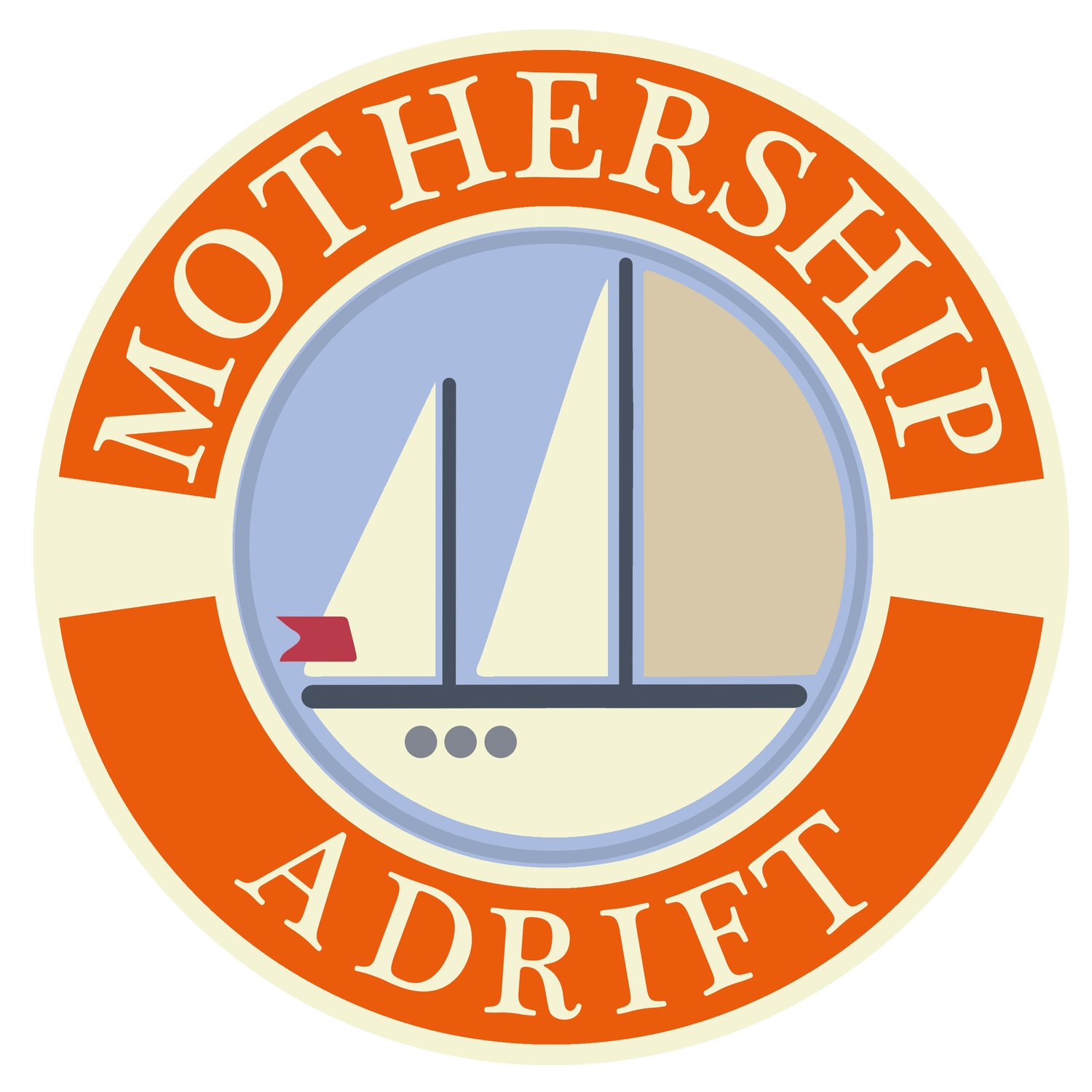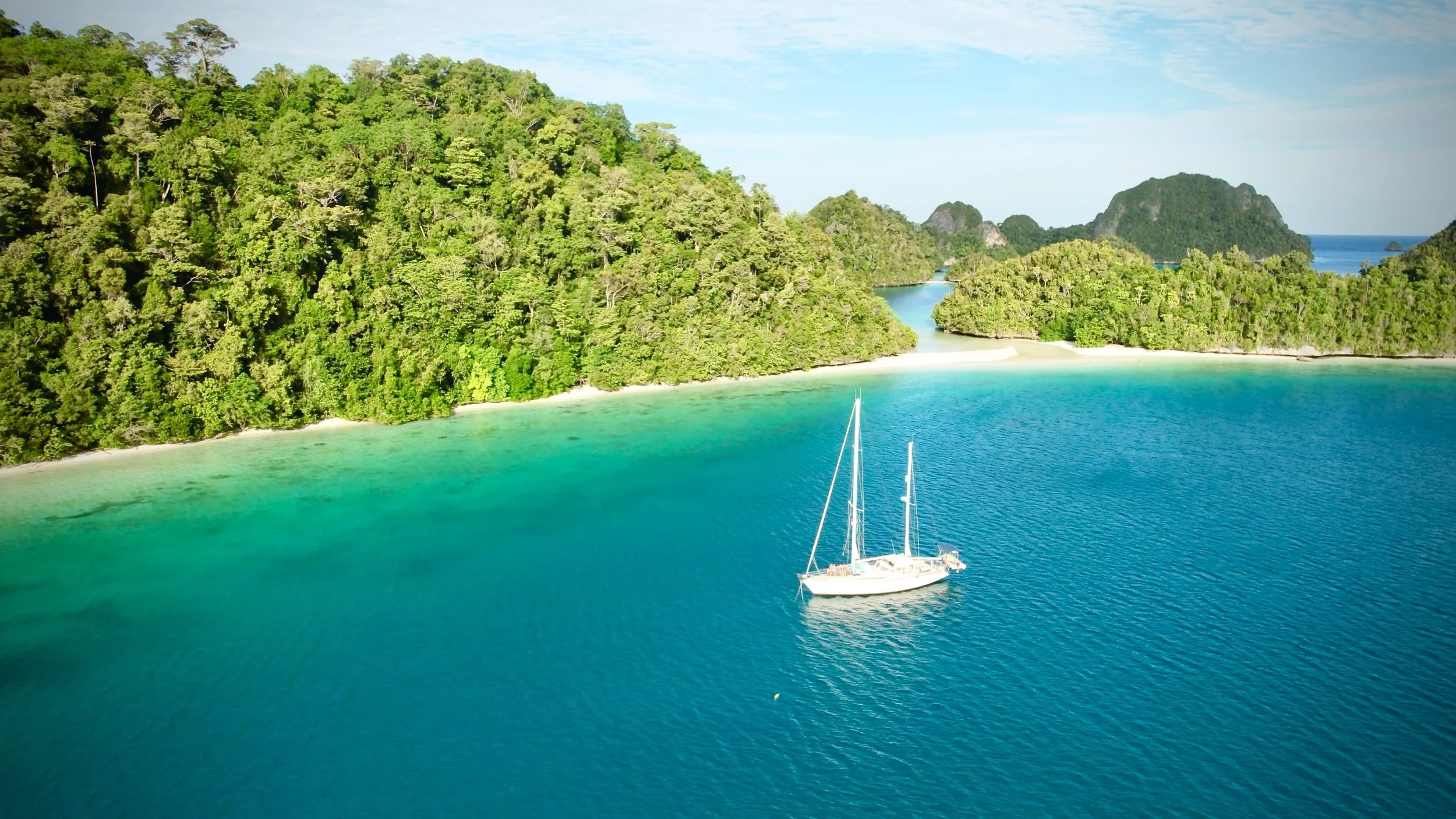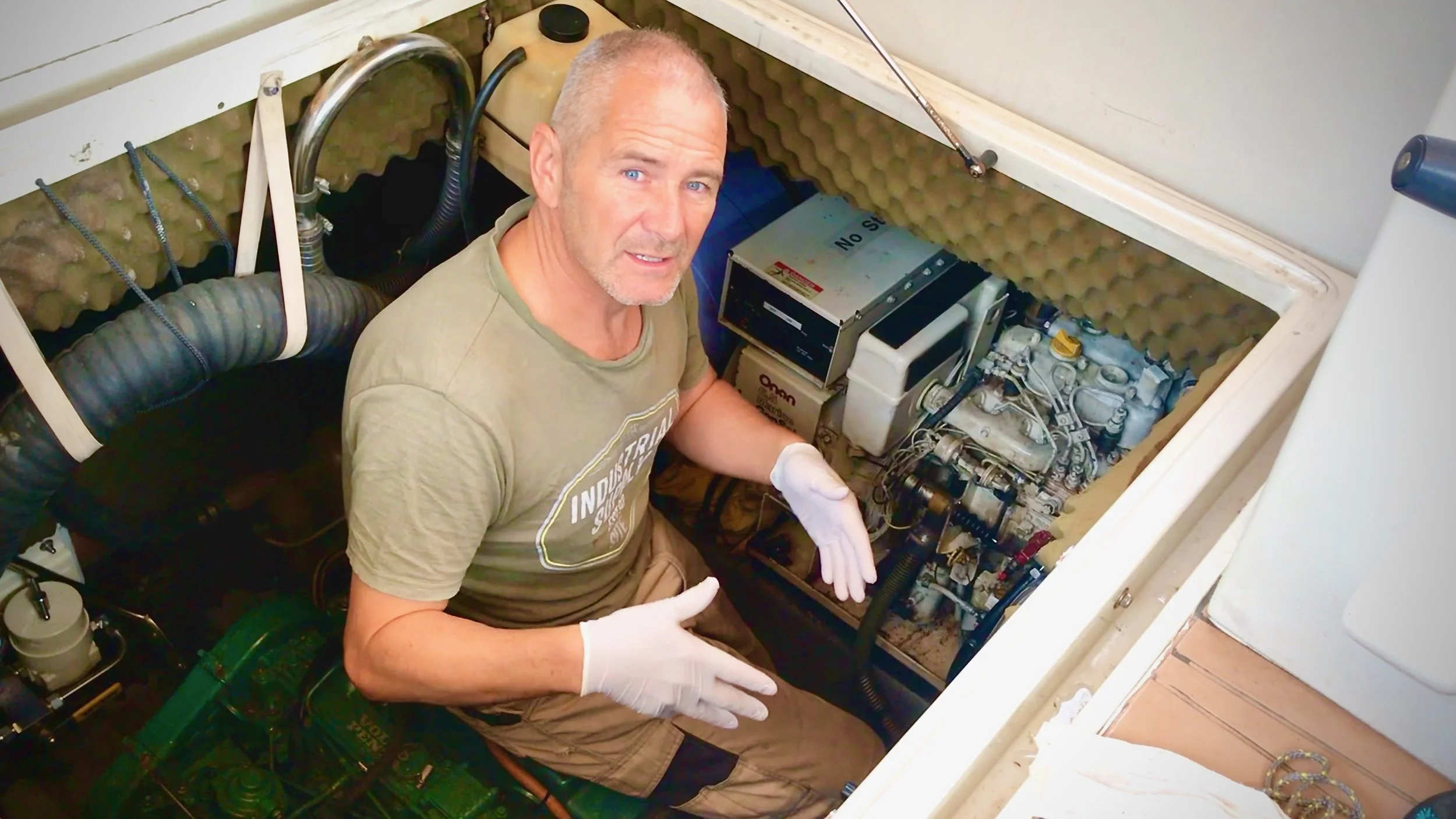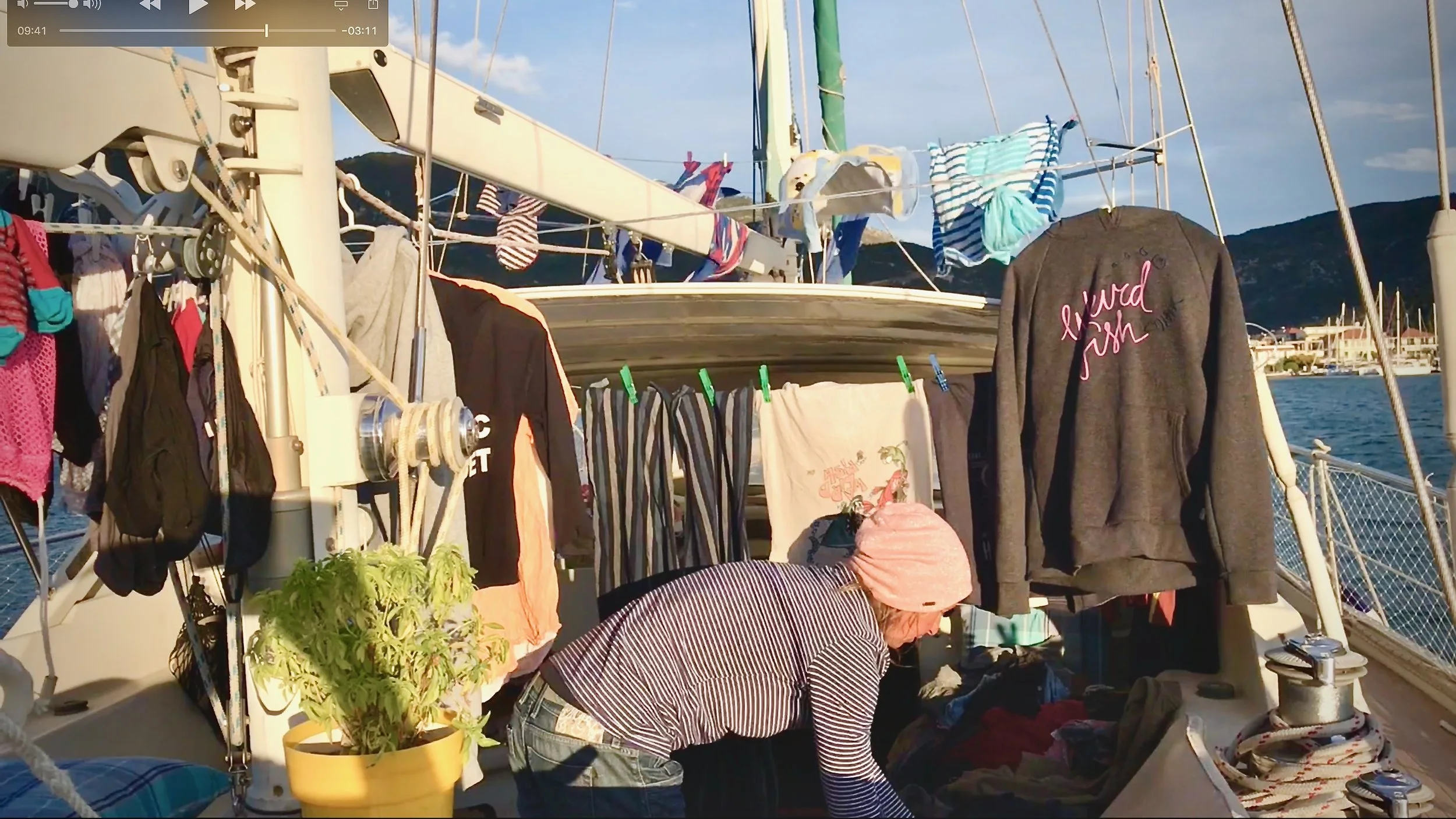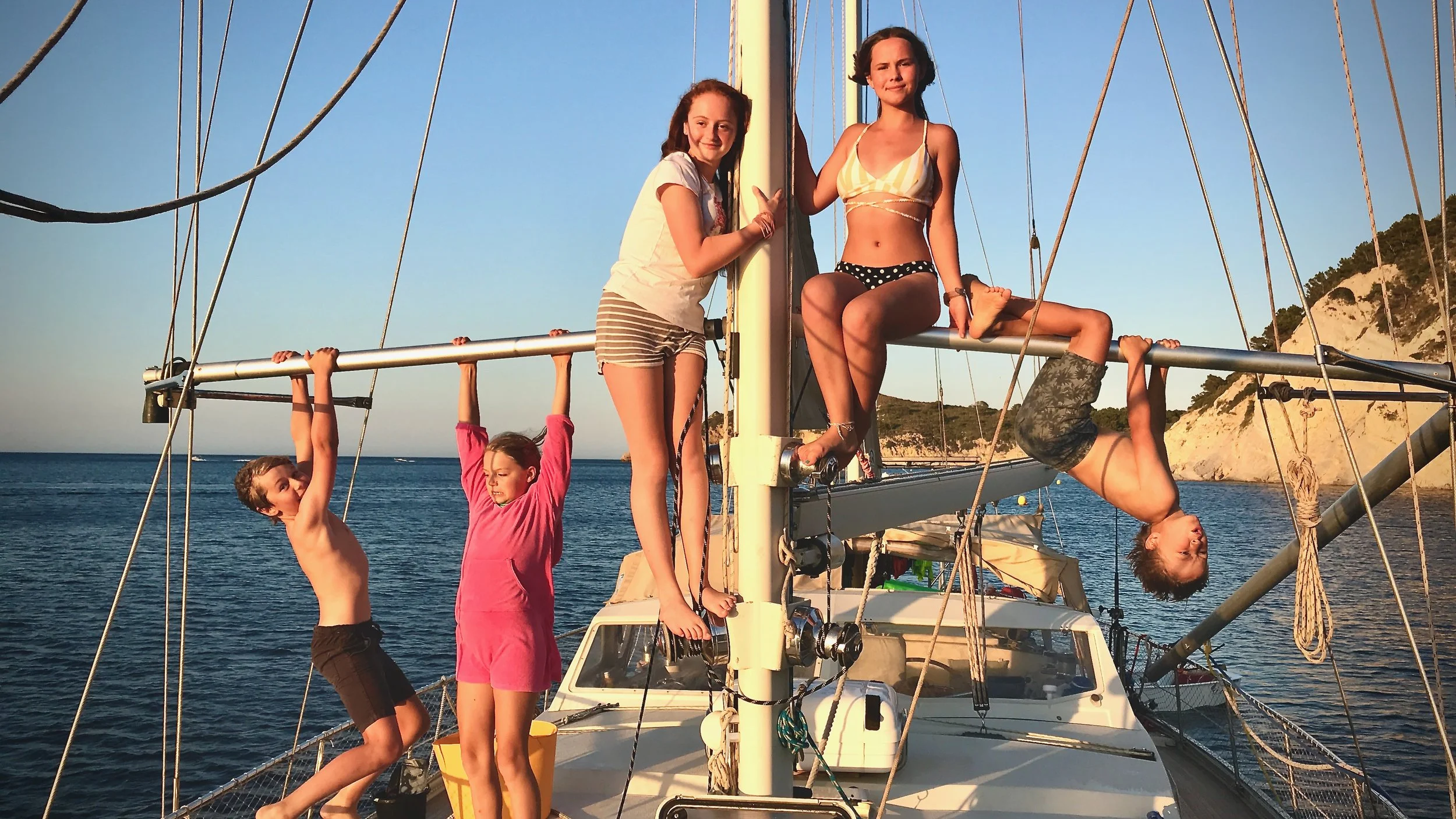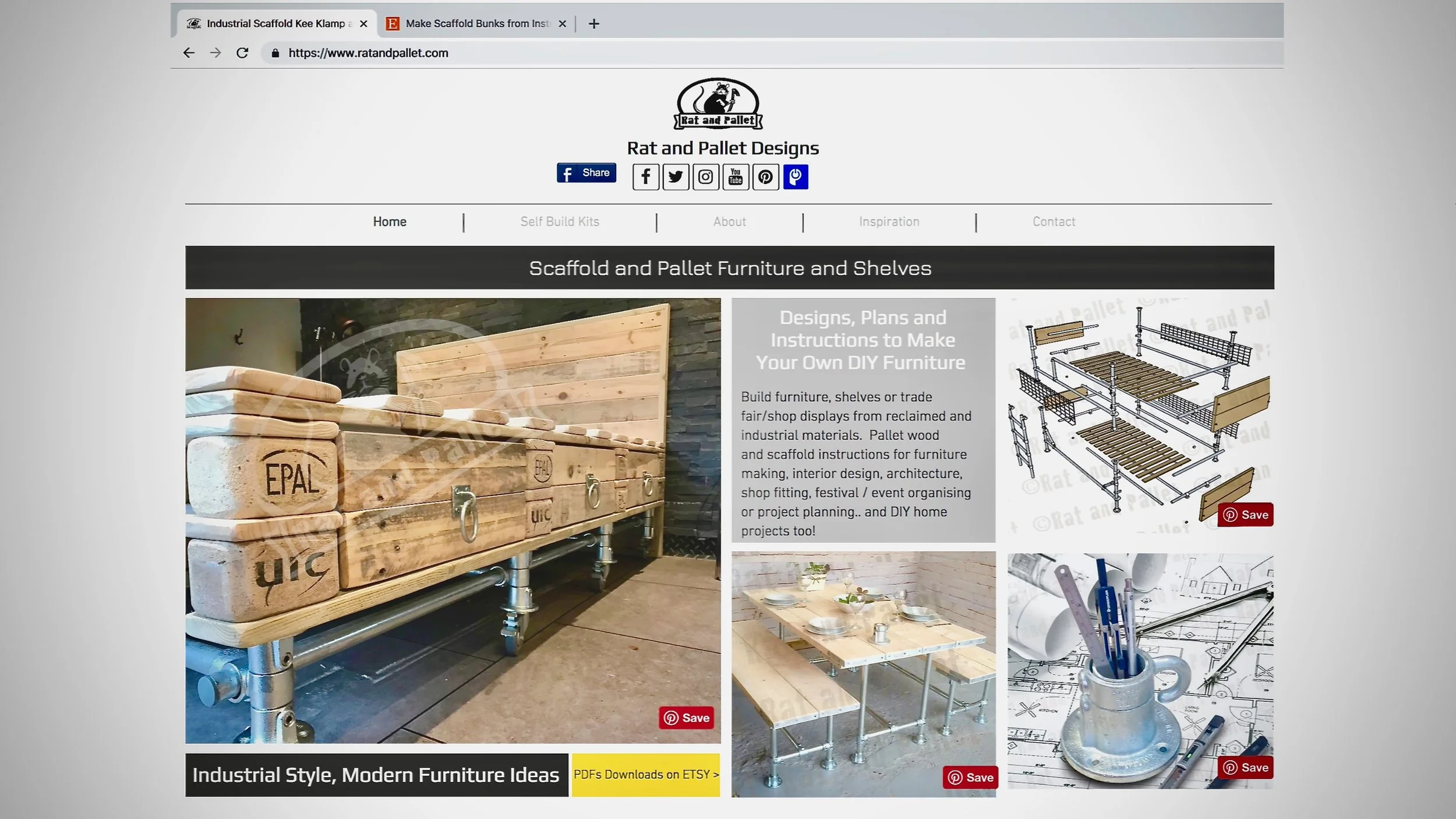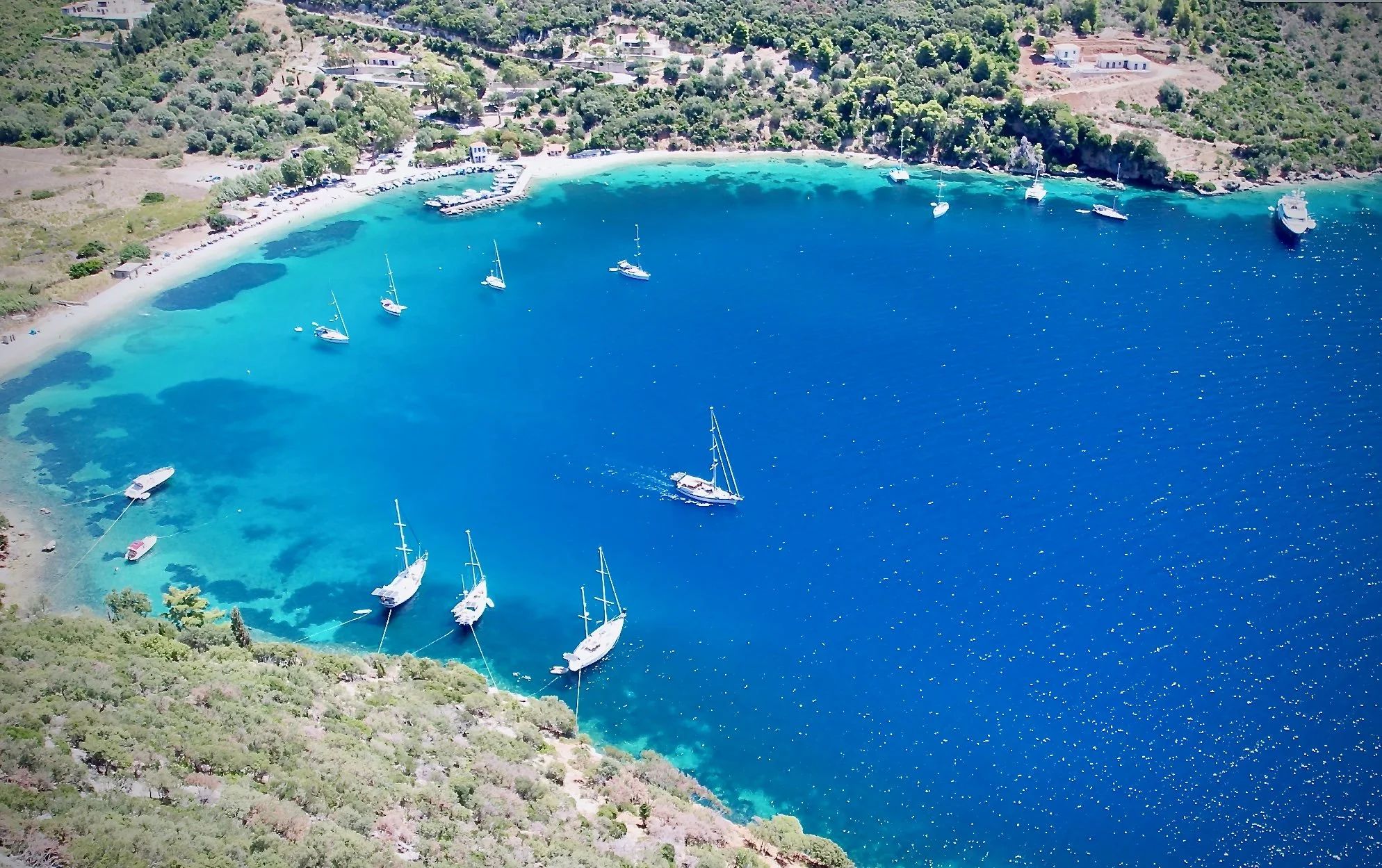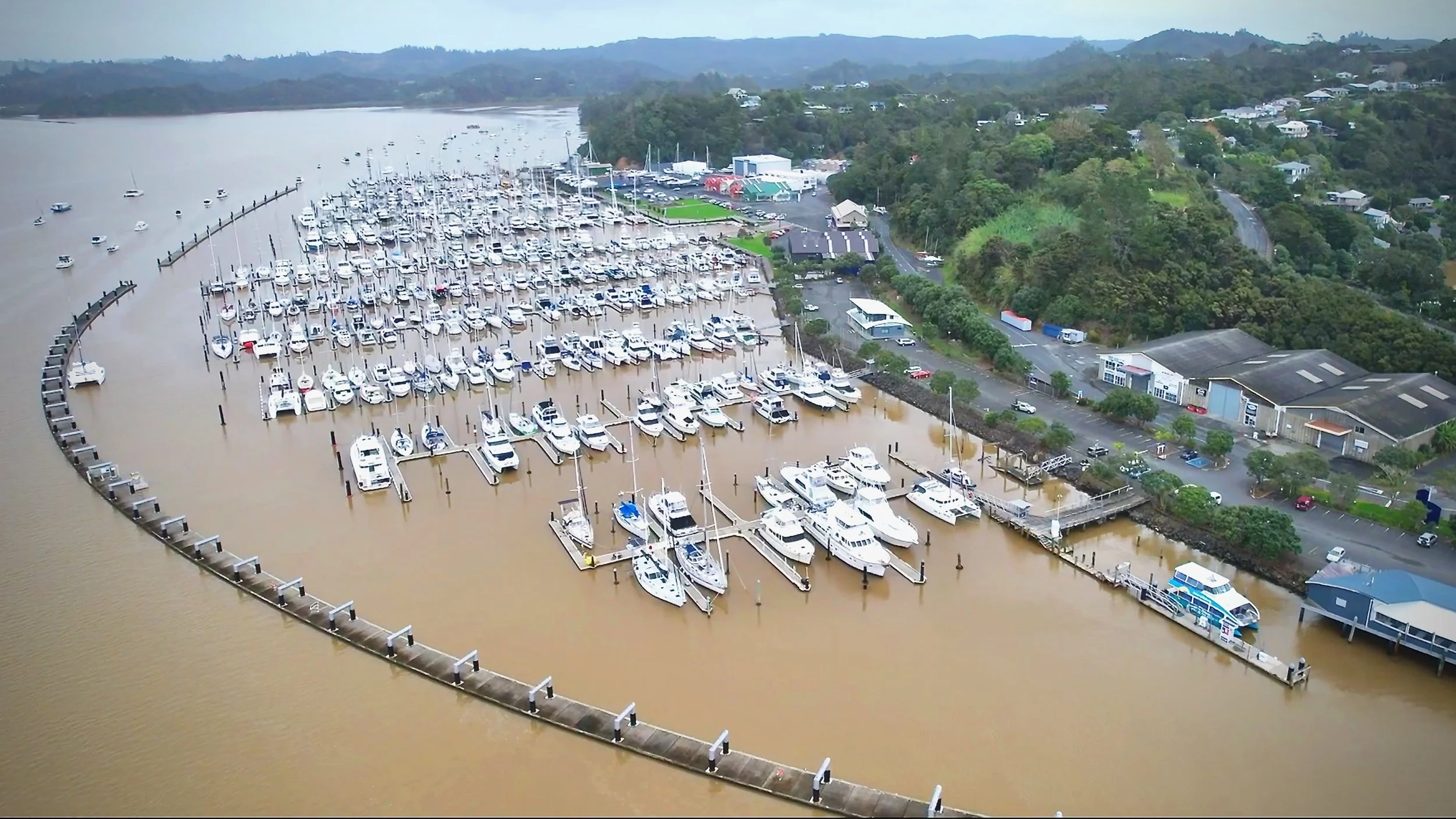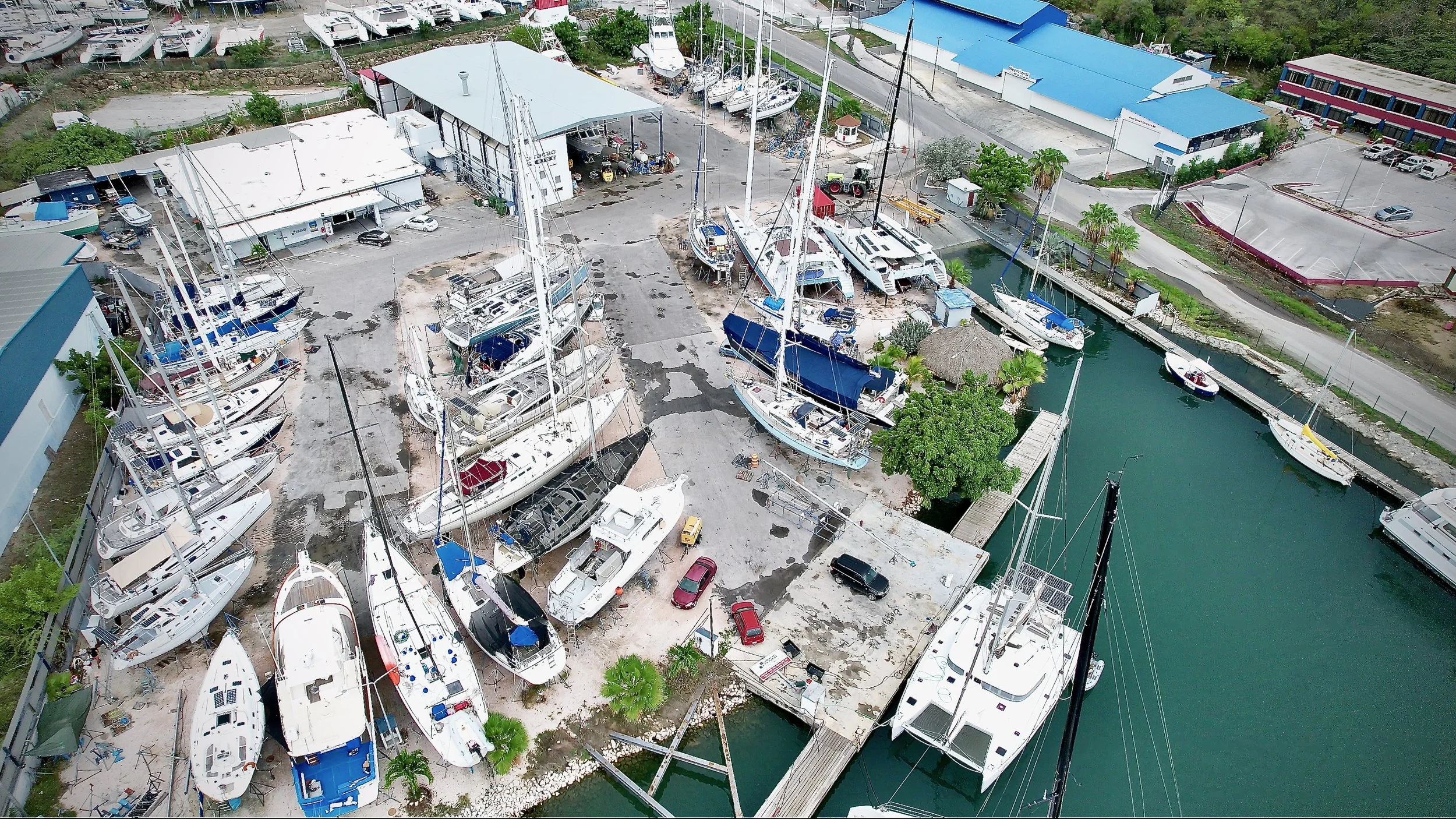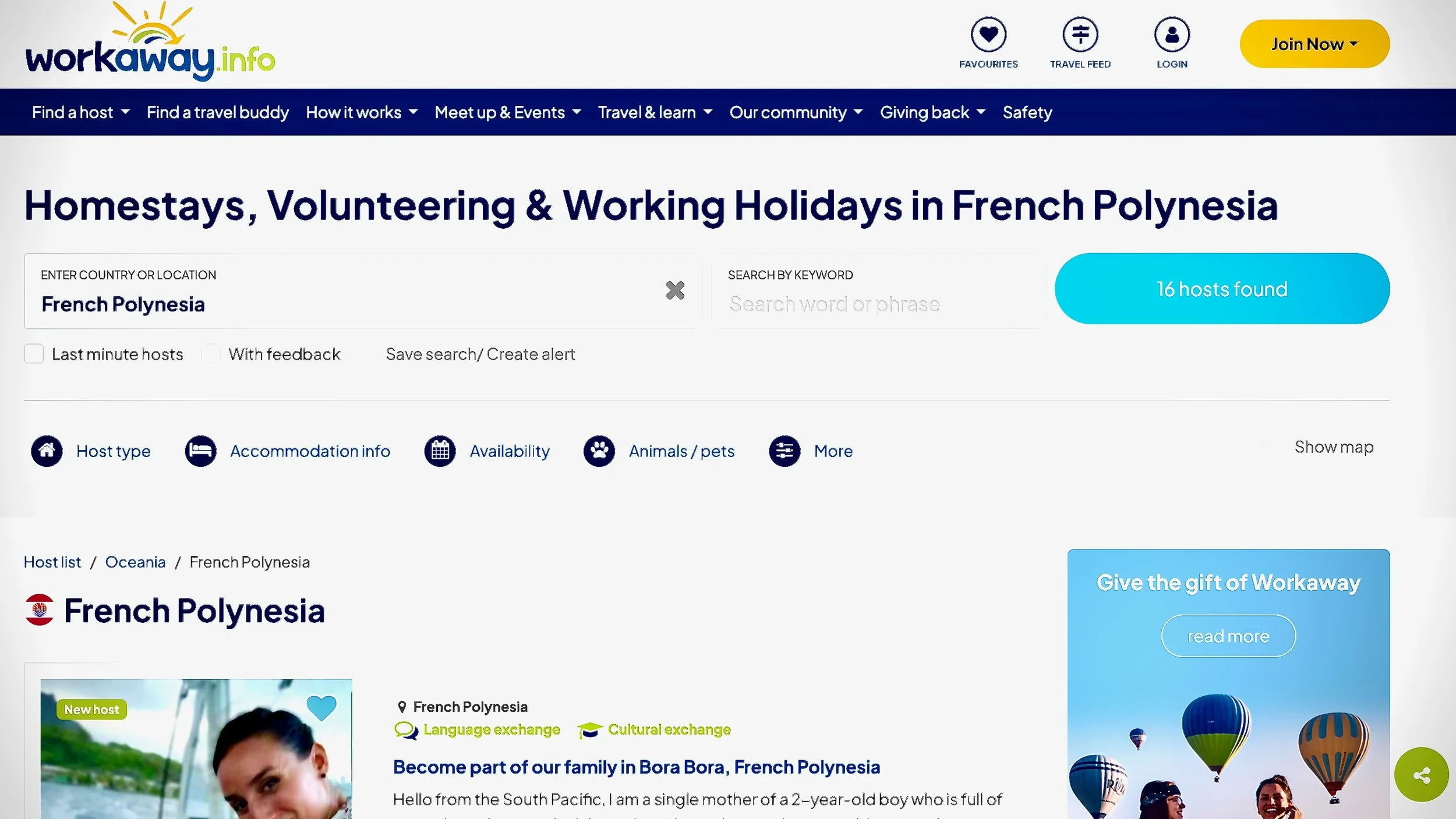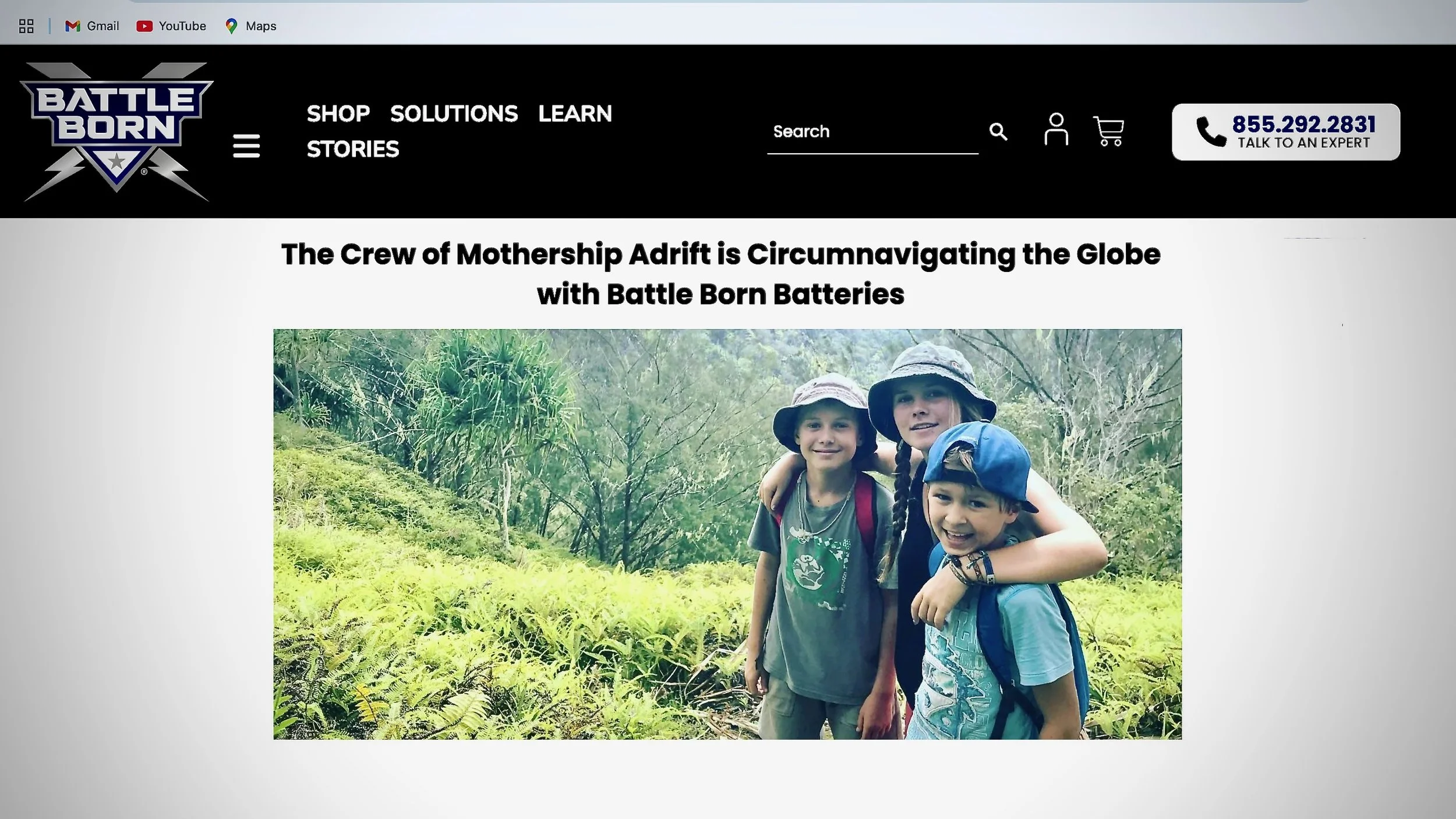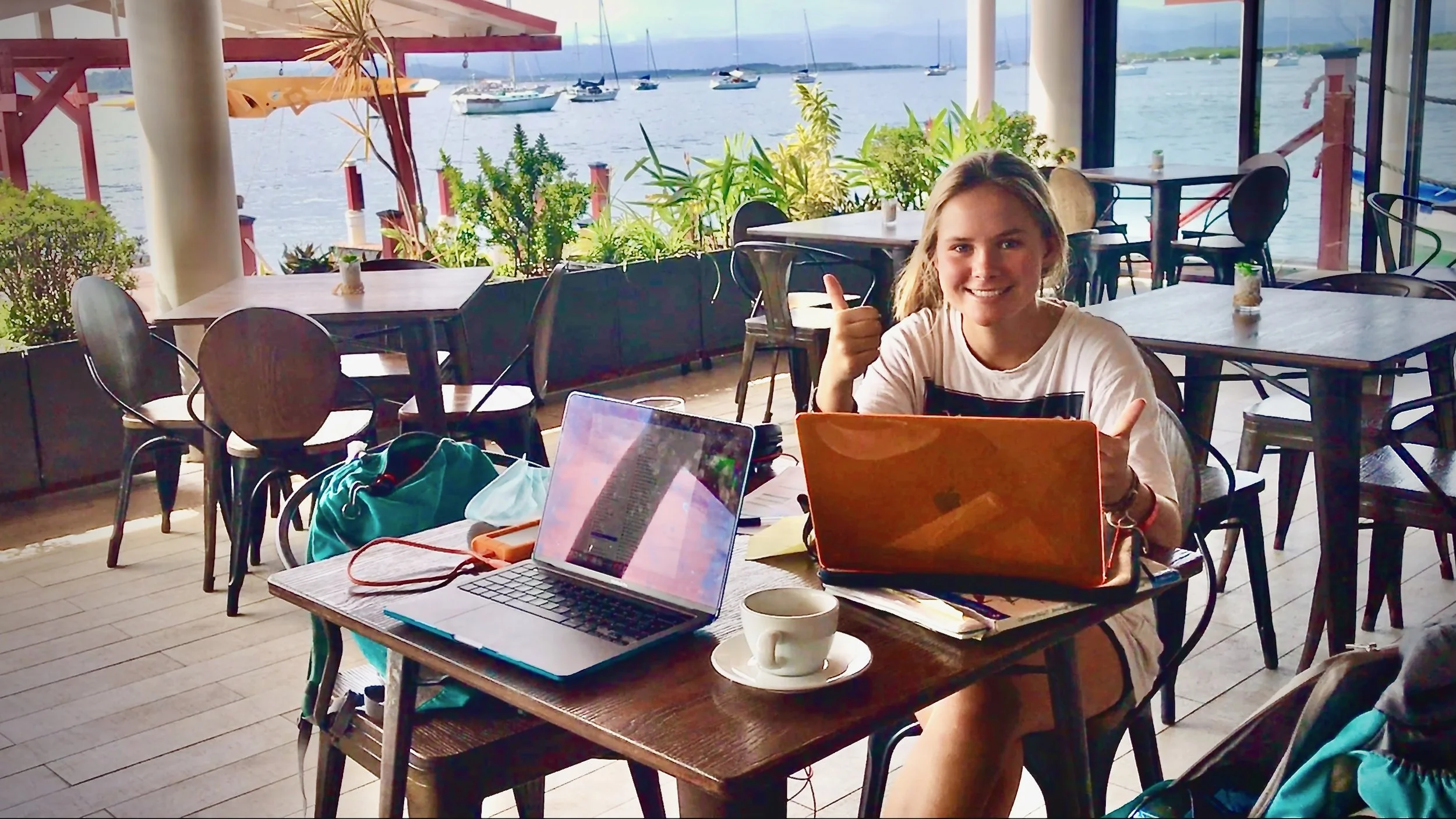Digital Nomading on a Sailboat
01-04-14
“Your life does not need to be made easier, it needs to be made simpler. Your system is designed to handle stress and challenge, but not complication.”
S/V Mothership at anchor off an Island in Raja Ampat, Indonesia.
The Realities of Remote Work Afloat
Working from a sailboat usually conjures up images of laptops, tranquil bays, and barista style coffees with a little heart shaped swirl in the froth. Idyllic right?. What it doesn’t conjure up is an images of you knee-deep in a bilge, swearing at seized diesel engine while an important Zoom call pings at you indecently from beneath an oil rag.
Working from a sailboat doesn’t usually conjure up an images of you knee-deep in a bilge, swearing at seized diesel engine.
Or where your work day runs headfirst into a recalcitrant customs official whose only apparent purpose in life is to turn your clearing-in process into a three day event. Looking at you, Greece.
A boat, especially with a family aboard, is hardly an ideal workplace. Cramped quarters, constant movement, and the everyday chaos of cruising make focus, privacy, and anything resembling time management a rare luxury. Children need other children; without them, boredom, frustration, and disruption soon follow. With them, you’re inevitably drawn into socialising with other parents. Either way, it’s a catch-22.
The everyday chaos of cruising with a family on a sailboat make focus, privacy, and anything resembling time management a rare luxury. Nidri
Alternatively, you look up with a pang of parental guilt to find their screen time has ballooned into a Youtube Shorts binge-fest despite the allure of turquoise water just outside.
While on the move, every week brings a new anchorage, and every week you have to work out how to get ashore with the bin bags, where to buy groceries, and how long you’ve got before the wind shifts and blows your home onto the rocks.
It’s decision fatigue, time zone confusion, and a complete inability to find a decent marine electrician when your inverter dies. Gradually, you begin to understand why living your dream life isn’t having the magical effect on your stress levels you’d imagined.
Kids need other kids; without them, boredom, frustration, and disruption soon follow. - Spain
I Tried to Bring Shore Work Afloat. It Sank.
Back in 2017, I tried bringing my furniture design business aboard. I struggled to chase leads, build client relationships, or even stay online long enough to send an invoice. Add in the boat maintenance and the rather ambitious task of trying to recreate a classroom on board for the kids, and the results were inevitable. The work dried up, and the business flopped.
We ended up relying solely on rental income from our house in the UK. That meant resetting our financial expectations and living on far less than we’d hoped.
I tried bringing my furniture design business aboard but travelling took over, the work dried up, and the business flopped.
Remote Work Gets a Tech Upgrade
Fast forward eight years. We returned to the Med in 2025, and things had changed. Remote work from boats had become far more mainstream. The COVID era had fast-tracked remote infrastructure. Starlink made off-grid internet actually usable.
WhatsApp and Facebook groups made arranging kids’ meet-ups easier, and we quickly found ourselves in a floating tribe of liveaboard families in the Ionian. Parents worked from their boats while kids of all ages splashed and yelped outside like it was some glorious 1970s backstreet, with a waterpark upgrade.
A floating community with parents working from boats while kids play outside - Ionian, Greece.
Looking around, I often thought that if I started now, with eight years of experience, better connectivity, a larger community and a few key tweaks, maybe I could have made the business work. But even with the tech, working afloat is still not exactly a passive income paradise.
Working Abroad, not just working Aboard.
Thinking of working abroad? International waters might be free of visa checks, but dry land has rules. Most countries are not thrilled about foreign nationals earning money on their turf.
A few coastal regions offer remote work visas or digital nomad programmes. Others have skill shortage lists that favour trades like healthcare, marine services, engineering or education.
Unfortunately, this often means tying yourself to a dock or a specific address for an extended period. Which sort of defeats the point of the whole ‘freedom, travel and adventure’ thing in the first place.
Some countries offer remote work visas but this means tying yourself to a dock for extended periods. Opua, New Zealand
Cruisers Are Not Your Customers
One of the most common mistakes new cruisers make is thinking they’ll earn a living by offering services to fellow sailors. In reality, there’s not much that cruisers are willing to pay for. They are resourceful, tight-fisted and proudly DIY. If they can do something themselves, they will. If they can’t, they’ll still give it a go with a YouTube tutorial and some duct tape.
There are exceptions. Diesel mechanics, marine electricians, sailmakers and boat builders are always in demand. The holy grail is being one of those magical floating fixers. But many boatyard managers won’t tolerate outside contractors. Some won’t even let you work on someone else’s boat for free. They claim it’s for insurance reasons, but I suspect it’s more about protecting their overpriced monopoly.
Marine trades are always in demand but many boatyard managers won’t tolerate outside contractors. - Curacao.
Even if you can hustle up a bit of boat work on the side, you’re more likely to be paid in the cruiser’s favourite currency: booze. One lovely Mormon family we buddy-boated with ended up with a boatload of alcohol they couldn’t touch, all gifted by grateful cruisers for the help they’d given.
Don’t Bank on Boats-as-B&Bs
Then there’s the fantasy of taking paying guests aboard to help cover costs. It’s tempting, but can lead to awkward fallings-out when guest expectations don’t match the reality of cruising life. Some countries hand out hefty fines just for advertising that kind of thing. Again, looking at you Greece.
Plenty of people do it under the radar, but it’s a grey area that often requires expensive commercial licences, hidden costs and paperwork headaches. If you go down that route, do your research. A popular alternative would be to find volunteers on Workaway, Worldpackers or CrewSeekers to free up your homeschooling or watch keeping tasks while you concentrate on your income stream.
A popular alternative is finding volunteers on Workaway, Worldpackers or CrewSeekers to free up boat and homeschooling tasks while you concentrate on your income stream.
YouTube Dreams and Ad Revenue Reality
Another popular misconception is that starting a YouTube channel will generate income. After all, loads of people do it, right? But the space is saturated. There are thousands of sailing channels, many run by people with drones, production teams and tanned abs. Travel blogging is one of the most overcrowded markets going. Unless you’ve already got a decent following or an established platform, prepare for long hours and very little financial reward.
We do make a modest income from our own YouTube and Patreon channels, but it took years of relentless content creation. Daily filming. Weekly edits. Constant promotion. If you’re not absolutely obsessed with storytelling, don’t expect it to be quick, easy or remotely passive.
That said, the creator economy has changed. Brands now seek out ‘micro-influencers’ with small but engaged communities focused on specific interests. If you can build a niche and speak directly to it, there’s income to be made through affiliate deals, product partnerships and sponsored posts. It won’t make you rich, but it might get you some free gear and a lithium battery or two.
Brands seek out ‘micro-influencers’ with small but engaged communities so there’s income to be made through affiliate deals, product partnerships and sponsored posts.
Passive Income (The Sensible Kind)
The most reliable income we’ve had is from property. Not glamorous, but effective. We split our small UK house into two flats. One paid the mortgage. The other covered boat costs.
Rental property isn’t entirely passive. You’ll need a decent letting agent, reliable tenants and a couple of trustworthy trades on fast dial. But compared to the other income models we’ve seen, it remains a favourite among cruisers. Some have full portfolios and make a very comfortable living from them.
The Floating Life, Reconsidered
Working from a boat sounds fantastic. And occasionally, it is. But it’s also exhausting, sometimes infuriating and rarely passive. You will earn less, work strange hours and do everything while your home is floating, creaking and leaking beneath you.
You’ll ditch the morning commute, no longer field emails from Accounts and HR, trade office politics and school runs for haul-outs and homeschooling. - Bocus Del Toro, Panama
That said, you’ve ditched the morning commute. You’re no longer fielding emails from Accounts and HR. You’ve traded office politics and school runs for haul-outs and homeschooling. And if that’s your thing, it’s a hell of an upgrade.
For us, the sweet spot turned out to be a mix of storytelling, rental income and living simply. For others, it might be coding, consulting or flipping Bitcoin. Just make sure that whatever you’re building is sustainable, enjoyable and fits within the rhythm of a life afloat. Because eventually, even the most stunning anchorage starts to feel like another office with worse plumbing.
Yes, the learning curve is steep. Yes, your laptop will die of humidity and your Zoom calls will freeze just as you’re landing a new client. But you’ll also watch your kids swim with turtles on a Tuesday. You’ll make lunch in your swimwear and feel a strange sense of pride when you fix the water pump with nothing but a cable tie and a swearing fit.
This isn’t about recreating your old job at sea. It’s about reimagining work to suit the life you actually want. You’re not building a floating WeWork. You’re building something lean, mobile, and as low-maintenance as humanly possible.
And on the good days you’ll think:
Sod it. This’ll do nicely.
If you want more straight-talking tales from life afloat, and information about being a digital nomad on sailboats, then you’ll love our upcoming book. We're inviting early readers to join the pre-launch crew and get behind-the-scenes access as we wrestle it into shape. It’s honest, unfiltered, and occasionally useful. Sign up here to get involved, give feedback, and be part of something that’ll either be a bestseller or a brilliant cautionary tale.
